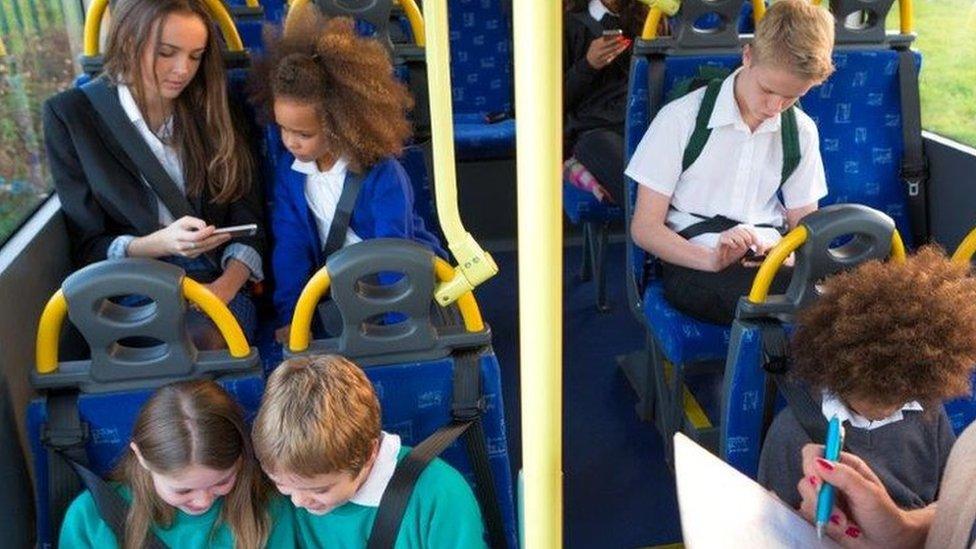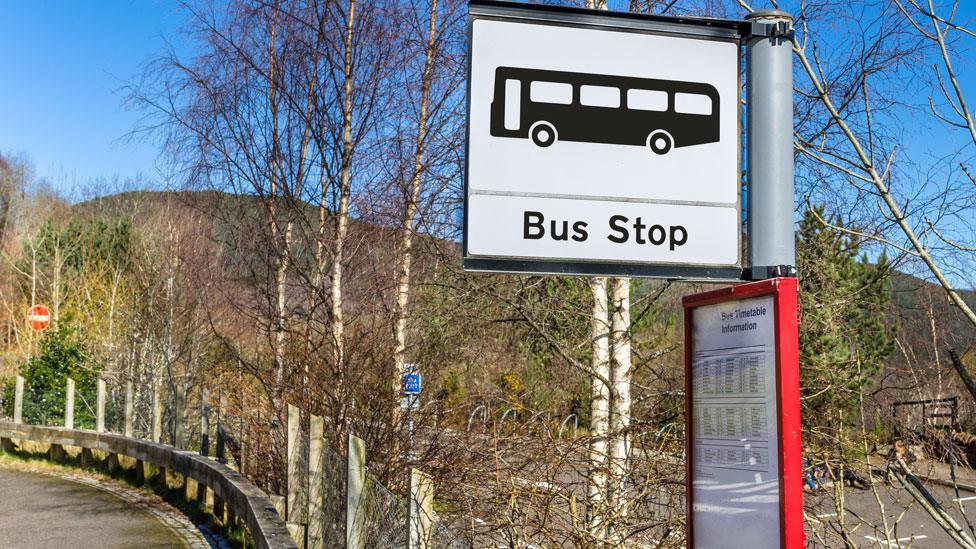School transport cuts causing 'distress and upheaval'
- Published

Some pupils are eligible for free transport to and from school
Will, who has autism and hates loud noise, was expected to walk a mile down a partly unlit route and take a bus and train to school, after his local council stopped funding a taxi for him.
Will tried it but soon became very distressed - so his mother had to drive him to and from school.
This was among 261 complaints about school transport decisions, external to England's local government ombudsman in 2015-16.
The figure is a marked increase, says the ombudsman, Michael King.
His report also says that complaints about school transport are more likely to be upheld than other complaints - 57% in the six months to last September, compared with 53% overall.
"When it comes to school transport... councils must ensure decisions are made fairly, legally and transparently," said Mr King.
"Failing to do this can cause confusion, financial hardship and have a significant impact on some of the most vulnerable families, particularly those who have children with special educational needs."
By law, councils in England must provide free transport for pupils under the age of 16 who cannot walk to school because they:
have a special need or disability
live outside statutory walking distance - two miles for under-eights and three miles for older children
face an unsafe walking route
To qualify for free transport, children must attend their nearest state-funded school, but there is flexibility for children with special needs or disabilities.
Will, not his real name, goes to a secondary school nearly four miles from his home in the Wirral.
According to his mother, he has very little awareness of risk and danger, and so since 2014 Wirral Metropolitan Borough Council had paid for him to go to school by taxi.
But last year, after a review, the council decided that as Will had no physical mobility problems, it would stop funding the taxi service.
His mother, along with other affected families, appealed but lost.
Eventually, after representations from the school and the intervention of the ombudsman,, external the council reversed its decision, apologised and agreed to pay compensation.
According to Mr King, the children had been "acutely affected by a sudden change to their routines... and the parents could not understand why their level of support had changed when their circumstances had not".

Regular school transport is not suitable for many children with special needs or disabilities
In another case, a family struggling on a very low income after the death of the father were refused free school transport for the youngest daughter even though her elder sisters attended the same school and had been deemed eligible.
The ombudsman's report, Navigating School Transport Issues, recommends that councils should:
consult parents and schools on changes to individual pupils' transport arrangements
provide clear and accessible information on eligibility for free transport
consider individual pupils' transport needs "carefully and judiciously"
consider wider health and safety issues as well as mobility for special needs pupils
The Local Government Association said councils took their responsibility for home-school transport for families in need "very seriously... amid further cuts to funding by central government".
Richard Watts, chairman of the LGA's Children and Young People Board, said: "Local authorities are working hard to ensure suitable travel arrangements are made for children who could not reasonably be expected to walk or would otherwise find it difficult to attend school because of distance, mobility, special educational needs or the routes they have to take.
"However, this is becoming increasingly difficult in the face of such sustained financial challenges."
- Published17 January 2017
